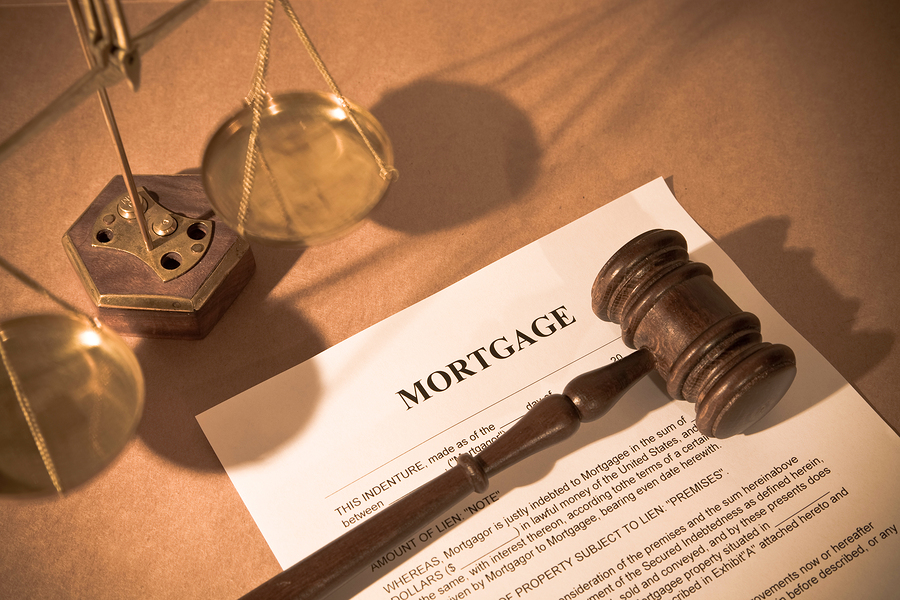Attorneys in Orange County for Realtors Charged With A Crime
CalBRE, or the California Bureau of Real Estate, regulates those holding a real estate license in the State of California. Prior to the issuance of a real estate license, CalBRE conducts a comprehensive background check on all license applicants, which includes mandatory fingerprinting. An original applicant for a real estate license must submit one set of classifiable fingerprints, acceptable to the State Department of Justice (DOJ) – Live Scan. The DOJ then notifies CalBRE of past arrests and criminal convictions. After a license is issued to an applicant, the licensee’s fingerprints remain in the DOJ’s database, which allows the DOJ to notify the CalBRE of a licensee’s subsequent arrest by a State or local law enforcement agency.
CalBRE may deny the issuance of a license to an applicant if he or she has been convicted of a “substantially related crime. CalBRE uses Criteria of Substantial Relationship to determine if a crime is substantially related to the qualifications, functions, and duties of a real estate licensee. As part of the CalBRE’s background investigation of applicants, the Bureau reviews all applicants’ criminal histories and determines if the applicant has committed any substantially related crime(s) which would serve as a basis for denial of the license. Additionally, pursuant to Section 485 of the Business and Professions Code, the bureau may deny an application for a license without first filing a Statement of Issues. However, when this occurs the applicant has 60 days from the date of the denial to request a hearing to contest the bureau’s denial.
An applicant for a real estate license is required to fully disclose any misdemeanor or felony criminal conviction(s). Additionally, an applicant must disclose if he or she has ever had a license in California or any other State denied, suspended, restricted or revoked, along with any pending criminal charges against them. More importantly, the failure to disclose any convictions on a real estate application may be considered an attempt to obtain a license by fraud or misrepresentation, and can result in the denial of a real estate license. An applicant for a real estate license is not required to disclose any Juvenile Court adjudication, any conviction sealed under Penal Code section 1203.45 or Welfare and Institutions Code section 781, and any conviction under Health and Safety Code section 11357(b), (c), (d), or (e), or Health and Safety Code section 11360(b) after at least two years have passed since the date of the conviction.
California Department of Real Estate Frequently Asked Questions (FAQ Section)
https://www.dre.ca.gov/files/pdf/faqs/FAQ-RERAPS.pdf
B P 10177
The commissioner may suspend or revoke the license of a real estate licensee, delay the renewal of a license of a real estate licensee, or deny the issuance of a license to an applicant, who has done any of the following, or may suspend or revoke the license of a corporation, delay the renewal of a license of a corporation, or deny the issuance of a license to a corporation, if an officer, director, or person owning or controlling 10 percent or more of the corporation’s stock has done any of the following:
(a) Procured, or attempted to procure, a real estate license or license renewal, for himself or herself or a salesperson, by fraud, misrepresentation, or deceit, or by making a material misstatement of fact in an application for a real estate license, license renewal, or reinstatement.
(b) Entered a plea of guilty or nolo contendere to, or been found guilty of, or been convicted of, a felony, or a crime substantially related to the qualifications, functions, or duties of a real estate licensee, and the time for appeal has elapsed or the judgment of conviction has been affirmed on appeal, irrespective of an order granting probation following that conviction, suspending the imposition of sentence, or of a subsequent order under Section 1203.4 of the Penal Code allowing that licensee to withdraw his or her plea of guilty and to enter a plea of not guilty, or dismissing the accusation or information.
(c) Knowingly authorized, directed, connived at, or aided in the publication, advertisement, distribution, or circulation of a material false statement or representation concerning his or her designation or certification of special education, credential, trade organization membership, or business, or concerning a business opportunity or a land or subdivision, as defined in Chapter 1 (commencing with Section 11000) of Part 2, offered for sale.
(d) Willfully disregarded or violated the Real Estate Law (Part 1 (commencing with Section 10000)) or Chapter 1 (commencing with Section 11000) of Part 2 or the rules and regulations of the commissioner for the administration and enforcement of the Real Estate Law and Chapter 1 (commencing with Section 11000) of Part 2.
(e) Willfully used the term “realtor” or a trade name or insignia of membership in a real estate organization of which the licensee is not a member.
(f) Acted or conducted himself or herself in a manner that would have warranted the denial of his or her application for a real estate license, or either had a license denied or had a license issued by another agency of this state, another state, or the federal government revoked or suspended for acts that, if done by a real estate licensee, would be grounds for the suspension or revocation of a California real estate license, if the action of denial, revocation, or suspension by the other agency or entity was taken only after giving the licensee or applicant fair notice of the charges, an opportunity for a hearing, and other due process protections comparable to the Administrative Procedure Act (Chapter 3.5 (commencing with Section 11340), Chapter 4 (commencing with Section 11370), and Chapter 5 (commencing with Section 11500) of Part 1 of Division 3 of Title 2 of the Government Code), and only upon an express finding of a violation of law by the agency or entity.
(g) Demonstrated negligence or incompetence in performing an act for which he or she is required to hold a license.
(h) As a broker licensee, failed to exercise reasonable supervision over the activities of his or her salespersons, or, as the officer designated by a corporate broker licensee, failed to exercise reasonable supervision and control of the activities of the corporation for which a real estate license is required.
(i) Used his or her employment by a governmental agency in a capacity giving access to records, other than public records, in a manner that violates the confidential nature of the records.
(j) Engaged in any other conduct, whether of the same or a different character than specified in this section, that constitutes fraud or dishonest dealing.
(k) Violated any of the terms, conditions, restrictions, and limitations contained in an order granting a restricted license.
(l) (1) Solicited or induced the sale, lease, or listing for sale or lease of residential property on the ground, wholly or in part, of loss of value, increase in crime, or decline of the quality of the schools due to the present or prospective entry into the neighborhood of a person or persons having a characteristic listed in subdivision (a) or (d) of Section 12955 of the Government Code, as those characteristics are defined in Sections 12926 and 12926.1, subdivision (m) and paragraph (1) of subdivision (p) of Section 12955, and Section 12955.2 of the Government Code.
(l)(2) Notwithstanding paragraph (1), with respect to familial status, paragraph (1) shall not be construed to apply to housing for older persons, as defined in Section 12955.9 of the Government Code. With respect to familial status, nothing in paragraph (1) shall be construed to affect Sections 51.2, 51.3, 51.4, 51.10, 51.11, and 799.5 of the Civil Code, relating to housing for senior citizens. Subdivision (d) of Section 51 and Section 4760 of the Civil Code and subdivisions (n), (o), and (p) of Section 12955 of the Government
Code shall apply to paragraph (1).
(m) Violated the Franchise Investment Law (Division 5 (commencing with Section 31000) of Title 4 of the Corporations Code) or regulations of the Commissioner of Corporations pertaining thereto.
(n) Violated the Corporate Securities Law of 1968 (Division 1 (commencing with Section 25000) of Title 4 of the Corporations Code) or the regulations of the Commissioner of Corporations pertaining thereto.
(o) Failed to disclose to the buyer of real property, in a transaction in which the licensee is an agent for the buyer, the nature and extent of a licensee’s direct or indirect ownership interest in that real property. The direct or indirect ownership interest in the property by a person related to the licensee by blood or marriage, by an entity in which the licensee has an ownership interest, or by any other person with whom the licensee has a special relationship shall be disclosed to the buyer.
(p) Violated Article 6 (commencing with Section 10237).
(q) Violated or failed to comply with Chapter 2 (commencing with Section 2920) of Title 14 of Part 4 of Division 3 of the Civil Code, related to mortgages.
If a real estate broker that is a corporation has not done any of the foregoing acts, either directly or through its employees, agents, officers, directors, or persons owning or controlling 10 percent or more of the corporation’s stock, the commissioner may not deny the issuance or delay the renewal of a real estate license to, or suspend or revoke the real estate license of, the corporation, provided that any offending officer, director, or stockholder, who has done any of the foregoing acts individually and not on behalf of the corporation, has been completely disassociated from any affiliation or ownership in the corporation. A decision by the commissioner to delay the renewal of a real estate license shall toll the expiration of that license until the results of any pending disciplinary actions against that licensee are final, or until the licensee voluntarily surrenders his, her, or its license, whichever is earlier.
(This section became operative on July 1, 2012).
B P 10186.1
(a) A license or an endorsement of the department shall be suspended automatically during any time that the licensee is incarcerated after conviction of a felony, regardless of whether the conviction has been appealed. The department shall, immediately upon receipt of the certified copy of the record of conviction, determine whether the license or endorsement has been automatically suspended by virtue of the licensee’s incarceration, and if so, the duration of that suspension. The department shall notify the licensee of the suspension and of his or her right to elect to have the issue of penalty heard as provided in subdivision (d).
(b) If after a hearing before an administrative law judge from the Office of Administrative Hearings it is determined that the felony for which the licensee was convicted was substantially related to the qualifications, functions, or duties of a licensee, the commissioner upon receipt of the certified copy of the record of conviction, shall suspend the license or endorsement until the time for appeal has elapsed, if no appeal has been taken, or until the judgment of conviction has been affirmed on appeal or has otherwise become final, and until further order of the department.
(c) Notwithstanding subdivision (b), a conviction of a charge of violating any federal statute or regulation or any statute or regulation of this state regulating dangerous drugs or controlled substances, or a conviction of Section 187, 261, 262, or 288 of the Penal Code, shall be conclusively presumed to be substantially related to the qualifications, functions, or duties of a licensee and no hearing shall be held on this issue. However, upon its own motion or for good cause shown, the commissioner may decline to impose or may set aside the suspension when it appears to be in the interest of justice to do so, with due regard to maintaining the integrity of, and confidence in, the practice regulated by the department.
(d) (1) Discipline may be ordered against a licensee in accordance with the laws and regulations of the department when the time for appeal has elapsed, the judgment of conviction has been affirmed on appeal, or an order granting probation is made suspending the imposition of sentence, irrespective of a subsequent order under Section 1203.4 of the Penal Code allowing the person to withdraw his or her plea of guilty and to enter a plea of not guilty, setting aside the verdict of guilty, or dismissing the accusation, complaint, information, or indictment.
(d) (2) The issue of penalty shall be heard by an administrative law judge from the Office of Administrative Hearings. The hearing shall not be held until the judgment of conviction has become final or, irrespective of a subsequent order under Section 1203.4 of the Penal Code, an order granting probation has been made suspending the imposition of sentence, except that a licensee may, at his or her option, elect to have the issue of penalty decided before those time periods have elapsed. Where the licensee so elects, the issue of penalty shall be heard in the manner described in subdivision (b) at the hearing to determine whether the conviction was substantially related to the qualifications, functions, or duties of a licensee. If the conviction of a licensee who has made this election is overturned on appeal, any discipline ordered pursuant to this section shall automatically cease. Nothing in this subdivision shall prohibit the department from pursuing disciplinary action based on any cause other than the overturned conviction.
(e) The record of the proceedings resulting in a conviction, including a transcript of the testimony in those proceedings, may be received in evidence.
(f) Any other provision of law setting forth a procedure for the suspension or revocation of a license or endorsement issued by the department shall not apply to proceedings conducted pursuant to this section.
B P 11522
A person whose license has been revoked or suspended may petition the agency for reinstatement or reduction of penalty after a period of not less than one year has elapsed from the effective date of the decision or from the date of the denial of a similar petition. The agency shall give notice to the criminal defense Attorney General of the filing of the petition and the DUI Attorney General and the petitioner shall be afforded an opportunity to present either oral or written argument before the agency itself. The agency itself shall decide the petition, and the decision shall include the reasons therefor, and any terms and conditions that the agency reasonably deems appropriate to impose as a condition of reinstatement. This section shall not apply if the statutes dealing with the particular agency contain different provisions for reinstatement or reduction of penalty.
We make every endeavor to avoid a criminal conviction that could lead to a disciplinary action; but if that is not possible, we will guide you in the best way possible to mitigate any damage to your licensing and your livelihood.












